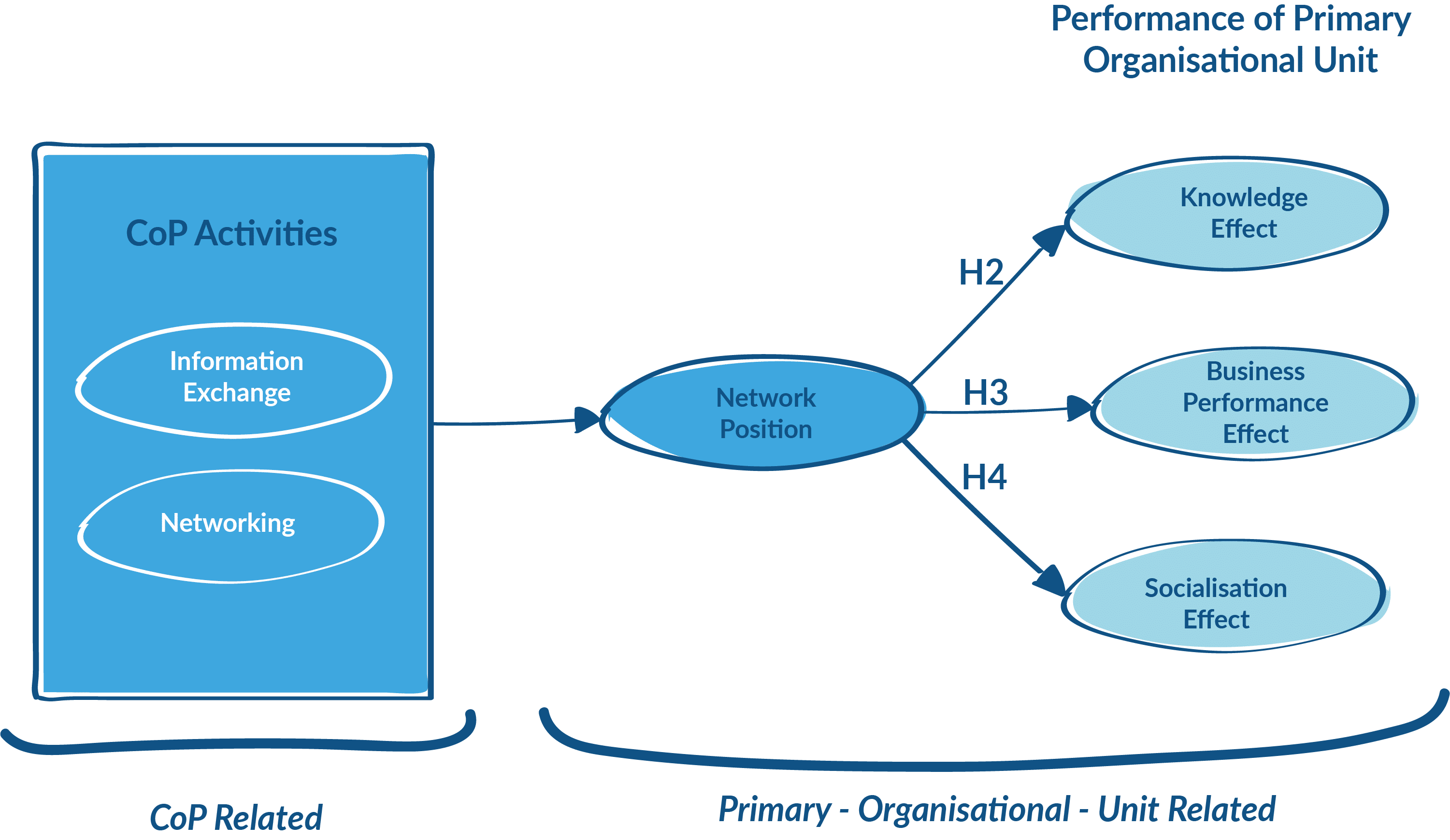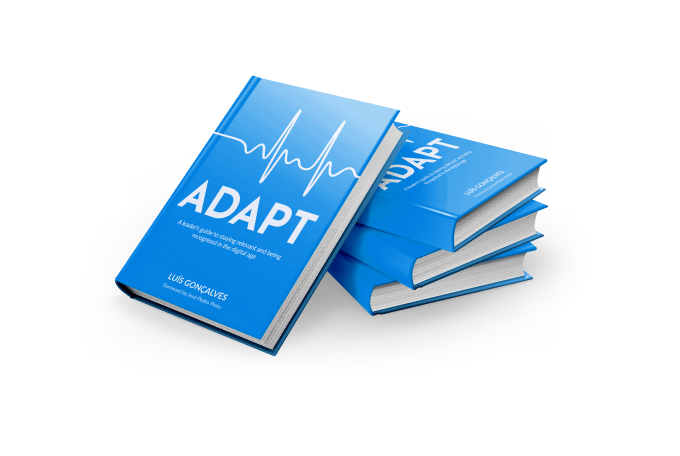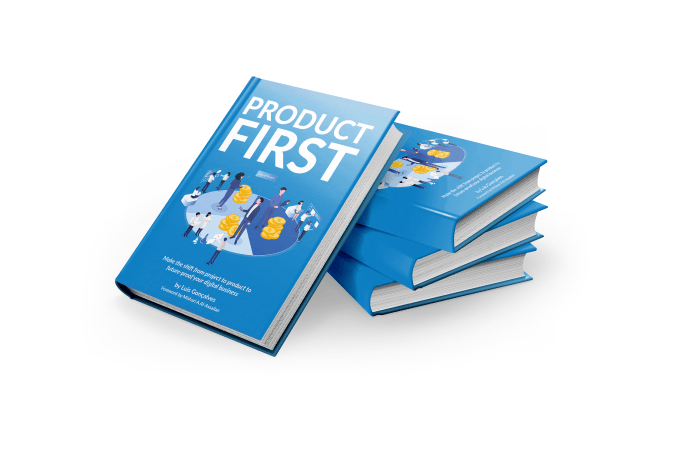Share this
Why Are Communities of Practice Important in Organisations?
by Luis Gonçalves on Jan 13, 2024 6:06:47 AM
Communities of Practice have been an efficient way of leveraging businesses over the past decades, and it’s a mandatory practice for every Digital Product Company.
ADAPT Methodology® is a unique Digital Product Development framework to change traditional project-centric companies toward product-led companies!
Society changed and leaders need support in the way how they lead and design their digital product organizations, that is the reason why the ADAPT Methodology® was created, but now let’s get a deep dive into Communities Of Practice if you want to get a deeper knowledge about this topic.
It serves many important purposes, from educating to supporting your company’s talent, encouraging their growth, driving performance, and even resolving conflicts.
In this article, we answer the most critical questions of every executive and leader – why are communities of practice important?
And in this digital-savvy world where anyone has easy access to all kinds of resources, would CoP still work for companies?
Understanding CoP: A Quick Review
If you’ve been reading our blogs lately, you already have an idea of what CoP is and how it benefits your organization.
In essence, communities of practice are formed when people who share the same domain (or expertise) come together to learn and share their insights about specific topics.
In the present world, CoPs are formed not only to promote knowledge sharing. Members meet and interact regularly, discuss various topics, initiate projects, and conduct other activities to improve many areas of their organization or industry.
According to Étienne Wenger, educational theorist, practitioner, and a known proponent of communities of practice, learning doesn’t take place with the master, but rather, among the apprentices.
He also said that learning cannot be separated from a social context, which reinforces the importance of community experts or practitioners gathering together to brainstorm and develop ways to better things.
Wenger notes that there are five critical functions of communities of practice
To educate
Every member of a CoP has some knowledge to share.
Being “experts” in the subject, each promotes learning by sharing ideas, information, skills, and techniques that help answer questions or issues raised within their practice.
To support
Communities of practice is a great place for people with the same interest and goals to collaborate.
It is a viable network where members benefit from one another as they create a pool of data and resources that strengthens each one’s knowledge and experience.
To cultivate
CoP makes a great learning avenue for individuals in the same industry, field or practice. What makes it even more effective is that it provides continuous learning.
As members meet and interact, the more knowledge they acquire.
To encourage
Members can promote their work, ideas, and concepts to the rest of the community through sharing and discussions.
To integrate
In communities of practice, members are encouraged to apply their new knowledge to their work and drive more impact.
Importance of Communities of Practice to an Organisation
From a ‘social theory of learning’ introduced by Lave and Wenger in 1991, communities of practice have become increasingly popular among corporate organizations.
According to an article published in the 2006 Cybernetics and Systems: An International Journal, CoP benefits organizations in two ways:
- Information exchange - search for and the delivery of information.
- Networking – meta-activities focused on promoting relationships among members of the organization.
In this report, the authors note that CoP activities can be described as a two-stage information process.
Apart from being part of the community, each member is also part of a formal organizational unit that is required to fulfill a specific task (which is their role or function in the organization).
The community activities they participate in are performed in a secondary group, which is meant to support their primary activities or main functions.
These activities are usually informal and involve a lot of sharing experiences, learning from each other, and networking.
All these positively impact the organization in three ways: knowledge, business performance, and socialization.

Why Focus on Communities of Practice?
Implementing communities of practice within your organization can have many valuable benefits to your company as a whole and to your staff.
For your organization, CoPs are a great tool to promote problem-solving, knowledge-sharing, and efficient use of resources, all of which are critical to professional learning.
CoPs provide a shared context where members of the organization can communicate and share information; stimulate learning through peer-to-peer mentoring, coaching, self-reflection, and collaboration; generate new knowledge; and initiate projects that develop tangible results.
CoPs also help establish synergies across various units of your organization. More importantly, CoPs strengthen your company’s strategic capabilities.
Through constant interaction and discussion, your staff can focus on the most important issues and initiate ways to resolve them.
It also ensures that everyone is up to date with the latest information, techniques, and practices that other organizations are doing. Other long-term benefits of promoting CoPs in your company are innovation and the creation of new strategies.
Even your employees benefit from communities of practice. Primarily, it gives them access to knowledge and expertise that they would not easily gain on their own.
This builds their confidence, enhances their quality of work, promotes personal development, and makes their work even more meaningful. All these contribute to talent retention.
Setting Up a CoP in Your Organisation
Now that you understand the benefits of CoPs in your organization, it’s time to set it up. Here are some basic steps to get started:
#1
Call for a meeting to establish a core group of community stakeholders and subject matter experts.
These people can then identify the role and purpose of the community, and how they will go about the details, from determining each member’s role to scheduling meetings, communication, etc.
#2
Create an online structure where these people can collaborate and collect all the information, resources, and other data gathered through their regular interaction.
#3
Review processes. From time to time, review which processes are effective and which ones need to be updated, changed, or eliminated.
Now, if you have a scrum master, s/he can easily help you with setting up and nurturing your CoPs. We also highly recommend that new Scrum masters to set this up in the first six months of stay in a company.
Conclusion
In the article “Is Yours a Learning Organization?”, Harvard Business Professors David Garvin and Amy Edmondson explained that learning is what enables companies to stay ahead of change and the competition.
Communities of practice are a great tool to facilitate learning within your organization.
More than their ability to educate, CoPs support, cultivate, encourage, and integrate learning that helps your team produce high-performing and knowledgeable team members, CoPs greatly contribute to the creation of new strategies, processes, and innovation that result in tangible outcomes.
Even with the great advancement of technologies that we have now, we still see the importance of having a face-to-face style of CoPs.
Facebook has been improving its Facebook Workplace and there are other tools to integrate technology in nurturing CoPs. But still, nothing beats a live lively exchange of innovative ideas.
Did you like this article?
We enable leaders to become highly valued and recognized to make an impact on the World by helping them to design Digital Product Companies that will thrive and nourish in the Digital Age, we do this by applying our own ADAPT Methodology®.
If you want to know how we can help you to start your transformation please check out our: Training.
If you are interested in doing a transformation in your company please check out our: Consulting.
Share this
- Agile Methodologies (18)
- Product Strategy (18)
- OKRs (16)
- Scrum (16)
- Product Mindset (14)
- Project To Product (10)
- Agile Retrospectives (9)
- CoPs (9)
- Knowledge Sharing (9)
- Time To Market (8)
- Product Discovery (7)
- Continuous Improvement (5)
- Strategy (5)
- Scrum Master (4)
- Content Marketing Strategy (3)
- Product Owner (3)
- Technical Excellency (3)
- Digital Transformation (2)
- Innovation (2)
- Scaling (2)
- Team Building (2)
- Business Model (1)
- Cost Of Delay (1)
- Customer Feedback (1)
- Customer Journey (1)
- Customer Personas (1)
- Design Thinking (1)
- Digital Leadership (1)
- Digital Product Tools (1)
- Go To Market Strategy (1)
- Google Design Sprint (1)
- Lean Budgeting (1)
- Lean Change Management (1)
- Market Solution Fit (1)
- Organisational Impediments (1)
- Outsourcing (1)
- Product (1)
- Product Metrics (1)
- Product Roadmaps (1)

Organisational Mastery
Get your free copy

ADAPT
Get your free copy

Product First
Get your free copy
